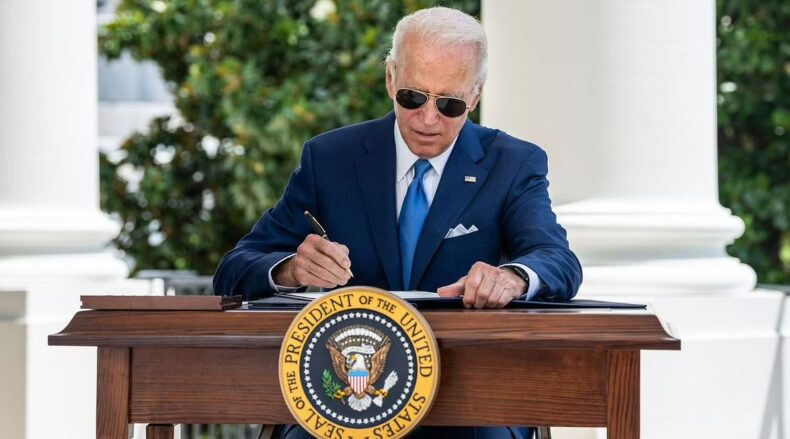The US Climate Bill will be a major step toward reducing carbon emissions and shifting to solar and wind energy by 2030. If passed in the House, the bill will be known as the Inflation Reduction Act.
The United States of America is the largest emitter of carbon dioxide in the world. In recent years, the United States has witnessed multiple climatic adversities. The US climate bill known as the Inflation Reduction Act is a huge step to limit dependence on fossil fuels. The bill aims to diminish dependence on fossil fuels and shift to renewable energy like solar energy.

The climate bill proposes $370 billion in spending for clean energy to overcome decades of inaction on the climate crisis. In history, this will be the first time, that any country allocates such an enormous amount to combat the climate crisis. Environmentalists and climate experts say this is not enough but a huge step in favour to preserve the planet.
In the past, several attempts to pass legislation for the climate were proposed. However, what they proposed to do didn’t agree with other senators of the White House. Previous bills focused on Carbon Tax, which would only make pollution expensive.
The Inflation Reduction Act, however, proposes to shift to natural energy and limit its dependence on coal, fuel, and oil by 2030. These three are the top causes that are deteriorating the environment and increasing carbon emissions in the United States.
Unlike others, will this Climate Bill see success?
Former vice president of the United States, Al Gore, said he was sure this time the people who back the fossil fuel industry won’t be able to stop this bill from becoming an Act. In an interview with the Guardian, Gore said, “In crossing this threshold, we have changed history and will never go backwards. I’m extremely optimistic that this will be a critical turning point in our struggle to confront the climate crisis.”

With the climate bill, Congress aims to make clean energy cheap in all aspects of life. The House is predicted to pass the bill for the largest spending to fight climate change and its repercussions.













